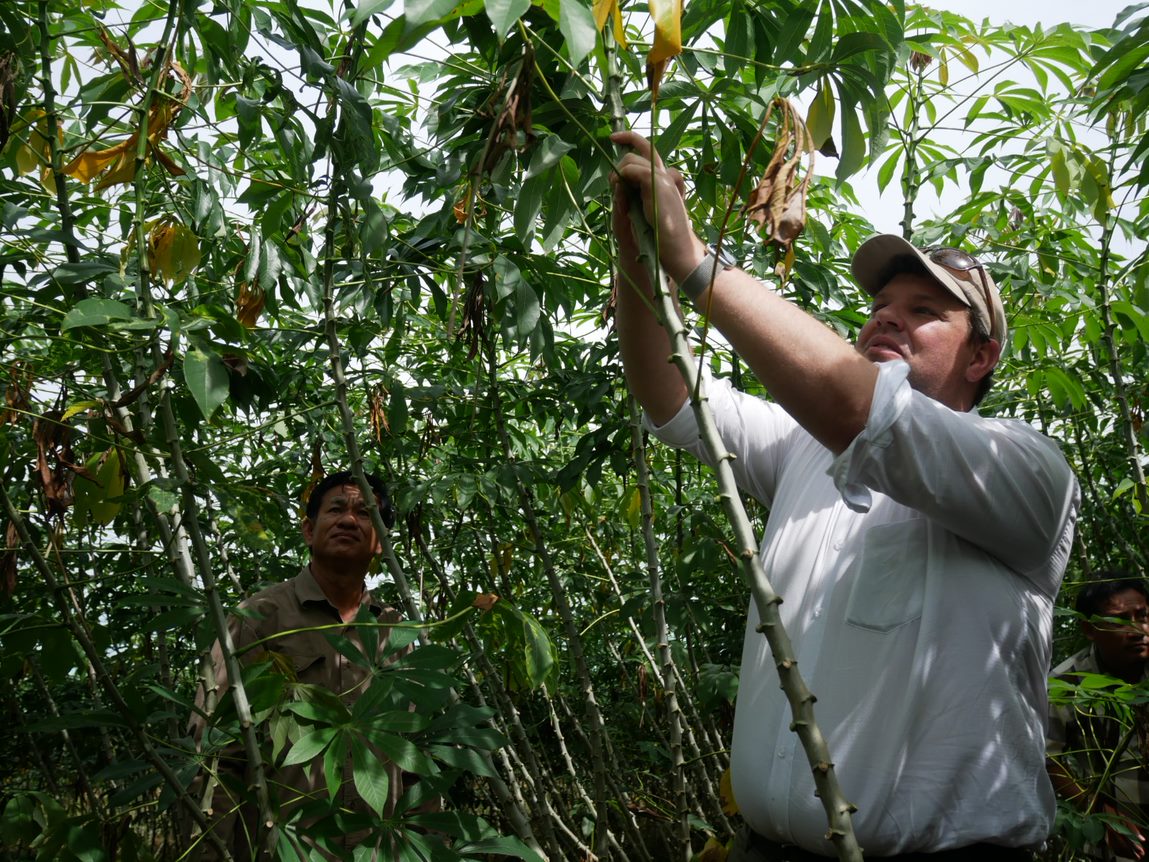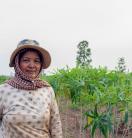ACIAR funds research to protect cassava industry in South East Asia

A new project is commencing to develop management solutions for farmers across South East Asia who are battling cassava diseases.
As Cassava Mosaic Disease spreads across the region, the Australian Centre for International Agricultural Research (ACIAR) is funding a new project that brings together scientists from Australia, Cambodia, China, Lao PDR and Vietnam to develop both short-term and long-term solutions to cassava diseases.
Cassava is the third largest source of calories after rice and maize in the region and supports an estimated 40 million people. South East Asia is currently the world’s largest trader of cassava starch that underpins a multi-billion-dollar industry, along with other cassava products including biofuel.
Dr Jonathan Newby, agricultural economist at International Center for Tropical Agriculture (CIAT) and project leader, said the spread of cassava diseases brings some of the most vulnerable households in the region into further difficulties.
“Cassava is often grown by the poorest farmers, and from research we know that cassava counts for over 50 percent of the income for farmers. If we don’t halt the spread of the disease, their incomes will be radically reduced, and this is really concerning – many people might end up in further debt and have to find work elsewhere,” Dr Newby said.
The research team will collaborate with local starch businesses and smallholder farmers across the region, along with experts from different parts of the world that have already faced some of these challenges and can provide solutions that can be deployed and adapted to the context.
Mr Howard Hall, Research Program Manager at ACIAR said the region’s agriculture sector has been traditionally focused on other major crops, so there is not much knowledge on how to tackle the spread of cassava diseases to safeguard the welfare of millions of farmers who include cassava in their farming systems.
“The project will look to develop new cassava varieties that produce high levels of starch, but are also able to withstand disease. In addition, it’s also vital that we test and develop a sustainable seed system that ensures disease-free planting material reaches farmers.” Mr Hall said.
Dr Newby added, “through testing the different varieties, we will find the plants that tolerate the disease best. This will give both farmers and companies a chance to remain in the cassava market despite the disease spreading throughout South East Asia.”
The research is a joint venture over four years between ACIAR, research partners in the region, and led by Center for International Tropical Agriculture.
For more information on this project, please visit the ACIAR project page or https://cassavadiseasesolutionsasia.net/




